Iran Confirms Death Of IRGC Commander In Syria
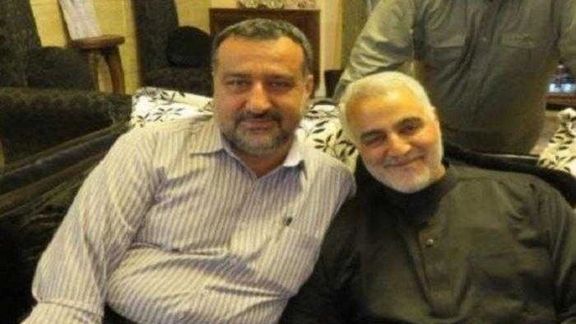
Iranian state media has officially announced the death of Seyed Razi Mousavi, a prominent figure associated with the Iranian Revolutionary Guards in Syria.

Iranian state media has officially announced the death of Seyed Razi Mousavi, a prominent figure associated with the Iranian Revolutionary Guards in Syria.
The confirmation follows reports from Lebanese media outlet Al-Mayadeen and Reuters, citing unnamed security sources, indicating that Mousavi, a high-ranking IRGC commander, was reportedly killed on Monday in an alleged Israeli airstrike near Damascus. Israel has neither confirmed nor denied the claims.
Explosions were noted in the Set Zaynab area in the Damascus countryside, with social media footage capturing a plume of smoke near the frequently targeted Damascus International Airport—a location often utilized by Iranian proxies in the region.
Unconfirmed reports from Iranian opposition media propose that Mousavi played a crucial role in coordinating financial and logistical support from Tehran to Iranian proxies in Syria.
Considered close to Qassem Soleimani, the former head of the Quds Force killed by a US drone in January 2020, Mousavi's demise is viewed as another significant loss for the IRGC in the region, according to Iranian media sources.
Amidst the ongoing Syrian conflict since 2011, the United Nations estimates that over 300,000 civilians lost their lives in the first decade. The war, persisting for 12 years, has displaced more than half of the country's pre-war population of 22 million, contributing significantly to Europe's migrant crisis.
Syria remains far from stable, influenced heavily by both Moscow and Tehran. The intricate relationship between Russia and Iran faces additional strain as they compete for increased influence in Syria. Iran's presence in the region adds complexity to the ongoing shadow war between Iran and Israel, with a primary focus on Syria.
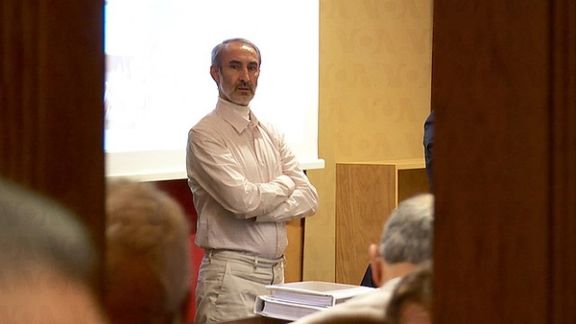
A former jailor found guilty for his involvement in the mass murder of thousands of political prisoners in 1988 is appealing his life sentence.
Hamid Nouri's family is appealing the Swedish court's decision upholding his life sentence to the International Court of Justice in The Hague, according to an Iranian lawmaker.
The Stockholm Court of Appeals upheld Hamid Nouri's life sentence last week following his appeal denying his role in Iran's 1988 massacre. Initially, Nouri was sentenced to life imprisonment by the Stockholm Regional Court on July 14, 2022, equivalent to 25 years in Swedish legal terms.
In an interview with IRNA, Parliamentarian Zohreh Elahian called the sentence which followed 92 trial sessions "premeditated".
In July, Kazem Gharibabadi, the secretary of Iran's High Council for Human Rights, claimed that Sweden was holding Nouri "hostage" and demanded that he be released. He alleged that Sweden had no evidence against Nouri and was simply defending the interests of the opposition in exile, The Mujahedeen-e-Khalq, an exiled Iranian resistance group, who had thousands killed in the massacre.
It is the first time an Iranian regime official has been prosecuted for his role in the 1988 massacre. When the regime was purging political prisoners at Gohardasht Prison in Karaj near Tehran, Nouri was a deputy prosecutor at the prison. In the massacre, approximately 30,000 people were brutally murdered, 90% of whom were members of the People's Mojahedin Organization of Iran (MEK).
In a statement, 452 Iranian activists and victims' families expressed their gratitude for the court's ruling, calling it a "huge victory for the Iranian justice movement."
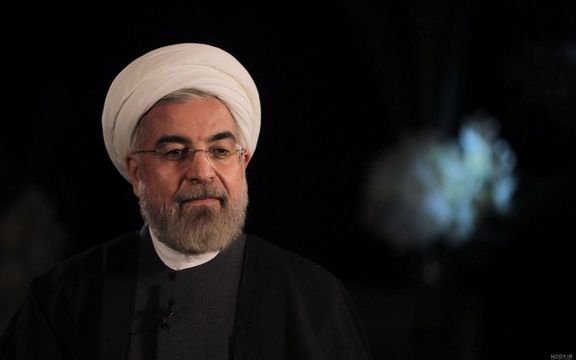
Iran's former president Hassan Rouhani has accused hardliners in power of preferring low-turnout parliamentary elections in March to keep control of the legislature.
“The ruling minority will establish itself better if we don't participate in the elections and minimal elections are held … There is a minority that does not want the majority to go to the ballot box,” Rouhani said in a speech at a meeting with a group of clerics and seminarians on Wednesday.
Rouhani’s website published the text of his speech on Saturday, shortly after Supreme Leader Ali Khamenei in a speech to a large group of hand-picked people from Kerman and Khuzestan provinces stressed the importance of voting in the upcoming elections.
In addition to electing a new parliament, the March 1 vote will also select the eighty-eight clerics of the Assembly of Experts that must choose Khamenei’s successor.
Blaming the opposition for discouraging people from voting, Khamenei insisted that the solution to the country’s problems is voting to form a “strong parliament” and that elections could prevent “dictatorship, chaos, insecurity, and turbulence (anti-government protests)”.
Rouhani registered to run in the elections of the Assembly of Experts at the last moment. He has been a member of the council for three consecutive terms since 1999. The last time that he was elected to the council was during his second presidential term in 2016 when he ran on a slate headed by the moderate former President Akbar Hashemi-Rafsanjani.
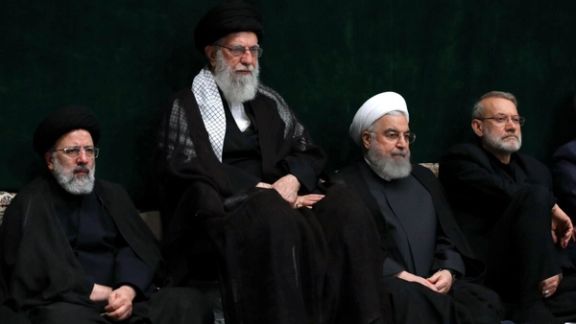
President Ebrahim Raisi joined the council eight later than Rouhani, in 2007.
Agahi-ye No, a reformist bi-monthly, has claimed that several influential figures including the reformist former vice president, Esh’aq Jahangiri, former moderate conservative speaker of the parliament Ali Larijani, and moderate conservative former speaker Ali-Akbar Nateq-Nouri advised Rouhani to run again.
Last week, the Secretary General of the pro-Rouhani Moderation and Development Party, Mohammad-Bagher Nobakht, who also served as the Rouhani administration’s spokesman, said Rouhani is trying to put together a list of sixteen candidates for the Council seats from Tehran but has no intention of doing the same for the parliamentary elections.
Rouhani's website featured a headline that emphasized a sentence from his speech: "Sometimes not voting in elections is a kind of vote." This statement has been perceived by some of his opponents as an encouragement to abstain from voting.
In an editorial on Sunday, the ultra-hardliner Bultan News attacked Rouhani for “proposal not to participate in the elections, on the same day that the Leader of the Revolution stresses participation.”
However, in his speech the former president argued that by not voting, people may be indirectly expressing their opinion about candidates who are not considered competent. In the absence of suitable candidates, it is hard to encourage people to go the ballot boxes, he stated.
“We should try to encourage people to participate and take [appropriate] measures so that those who come to the polls can vote for at least a few people instead of casting blank ballots,” he said referring to the unprecedented blank and void votes that made up at least 10 percent of the vote in the 2021 presidential elections.
Convinced that hardliners committed to Khamenei’s policies will cruise to victory with the help of the Guardian Council, which has barred most other insiders, many Iranians are showing very little interest in the upcoming elections.
A poll recently conducted by the semi-official Iranian Students Polling Agency (ISPA), found 27.9 percent of those polled saying they would definitely vote against 36 percent who said they would not under any circumstances. 21.9 percent said they had made no decision yet.
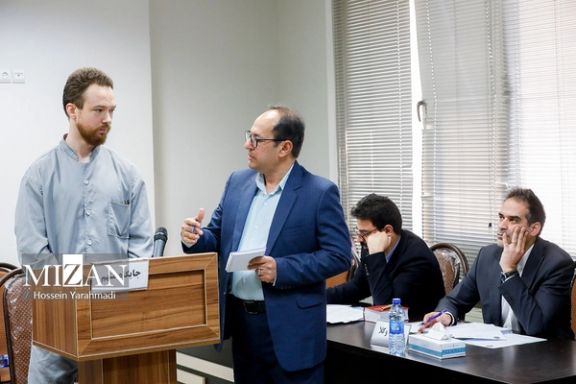
Iran's hardline newspaper Kayhan, has warned that Johan Floderus, a Swedish man currently held in Iran, would receive "significant and regrettable convictions".
The publication, recognized as the official mouthpiece for the leader of the Islamic Republic of Iran, likened the cases of Floderus and Hamid Nouri, a former Iranian prison official held in Sweden for his role in the 1988 massacre of political prisoners.
Floderus, like most foreign prisoners, has been accused among other crimes of "collaboration with Israel". He is one of an unknown number of foreign nationals or dual-nationals held in Iran under its policy of hostage diplomacy.
Currently facing charges of "corruption on earth," a serious Sharia accusation that could lead to a death sentence, Floderus is ensnared in a case that mirrors the lack of transparency characterizing numerous detentions of foreigners in Iran.
Detained in April 2022 on espionage charges during a visit to Iran, Floderus is navigating a legal process marked by limited transparency, raising concerns about a potential hostage situation. His detention has now surpassed 600 days.
Last week witnessed a Swedish court upheld the conviction of Nouri in a first of its kind. It is the first time a member of government has publicly been brought to justice for the tragedy which saw the murder of thousands.
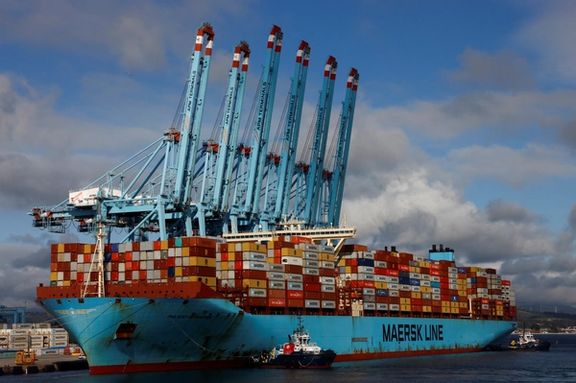
Danish shipping company Maersk has announced its decision to resume shipping operations in the Red Sea and the Gulf of Aden amid growing maritime tensions.
The decision follows Maersk's temporary suspension of vessel transit through the Bab al-Mandab strait in December. The action was taken in response to attacks from Iran's Yemeni proxy, the Houthis, on Maersk ships, resulting in the closure of the Suez Canal—a critical artery for global trade—rendering it impassable for a majority of routes.
On Tuesday, the United States officially declared the initiation of a multinational operation aimed at safeguarding Red Sea commerce from the Iran-backed militants. Since the outbreak of the Gaza war on October 7, the Houthis have been launching drones and missiles at international vessels, citing their actions as a response to Israel's attacks on fellow Iran-backed militants, Hamas.
In a statement released on Sunday, Maersk confirmed the establishment and activation of the previously disclosed multinational security initiative, Operation Prosperity Guardian (OPG). The primary objective of OPG is to facilitate maritime commerce through the Red Sea and the Gulf of Aden, thereby facilitating the resumption of traffic through the Suez Canal—a crucial link connecting Asia and Europe.
"With the OPG initiative in effect, we are preparing to allow vessels to resume transit through the Red Sea both eastbound and westbound," stated Maersk in the official communication. The company emphasized that additional details would be forthcoming in the coming days and highlighted the potential reconsideration of diverting ship traffic based on evolving safety conditions.
Concurrently, other entities, including the oil major BP, have also suspended transit through the Red Sea in recent weeks due to heightened safety apprehensions.
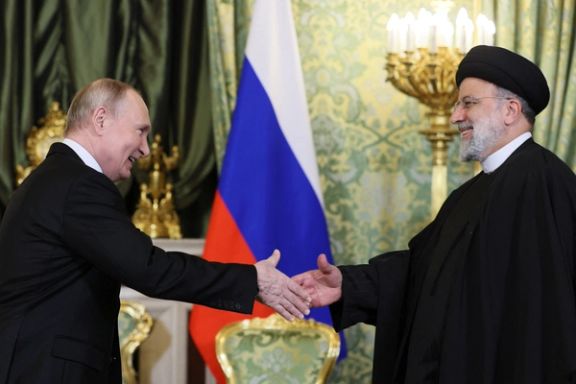
Reactions in Tehran to Moscow's support for Arab claims over three Iranian islands continue, with a lawmaker suggesting that Russia prefers Iran to remain isolated in the world.
Referring to the islands of Greater and Lesser Tunbs and Abu Musa in the Persian Gulf, MP Ahmad Avaei, a member of the National Security and Foreign Policy Committee, said President Ebrahim Raisi's reaction to Russia is weak. “It is surprising that Iran does not exhibit a strong reaction to Russia's actions," he said.
Avaei demanded a serious review of Iran's foreign policy and a more thorough examination of the possible damages inflicted by such political maneuvers by Russia.
Meanwhile, former Foreign Minister Javad Zarif stated during a gathering that it is natural for Russia to act according to its own interests. "If we offered excessive concessions to Russia with the wrong mindset, we should not expect similar behavior from Moscow," he said.
In spite of Iran and Russian getting ever closer since the Ukraine war, Avaei said Iran could not expect loyalty from Russia, which has historically been a fair-weather ally, from the Iran-Iraq war when it sided with Iraq to the latest dispute. “The Russians have always been the way they are, and one should not think that they have changed," he said. "They feel that this move contributes to their income, given Russia's strong interest in petrodollars, surpassing even their interest in dealings with Iran."
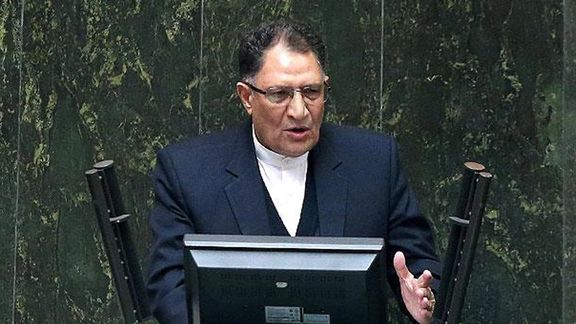
The issue is a recurring controversy in Iran as Russia endorses the UAE’s claim whenever there is a joint summit between the Gulf Cooperation Council (GCC) and the Russian Federation within a framework called the Russian-Arab Cooperation. Like all previous meetings, Moscow and the GCC issued a joint declaration in Morocco last week, reaffirming support for the United Arab Emirates which claims sovereignty over the islands.
The declaration has dozens of articles, most of which are merely repeated from one event to the other, calling for "bilateral negotiations or the International Court of Justice, in accordance with the rules of international law and the United Nations Charter, to resolve this issue in accordance with international legitimacy".
Iranian media, opposition activists and ordinary Iranians usually view the regime’s reactions as not strong enough. On Friday, Foreign Minister Hossein Amir-Abdollahian held a phone call with his Russian counterpart Sergey Lavrov, who reportedly reassured Iran that "The sovereignty and territorial integrity of the Islamic Republic of Iran has always been respected by Russia and Moscow's official policy in this regard should never be doubted."
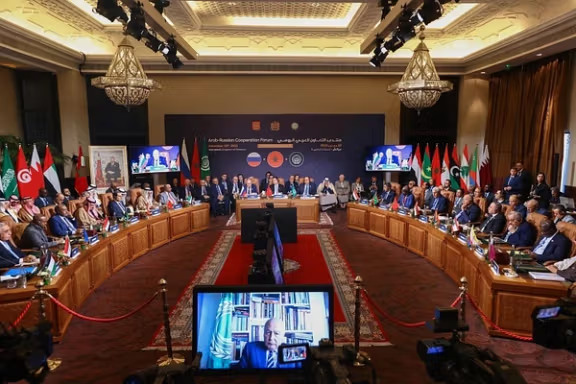
The three Persian Gulf islands have historically been part of Iran, proof of which can be corroborated by historical and geographical documents. However, the United Arab Emirates has repeatedly laid claim to the islands, describing the situation as “the continued occupation by the Islamic Republic of Iran.”
The three islands fell under British control in 1921 but on November 30, 1971, a day after British forces left the region and just two days before the UAE was to become an official federation, Mohammad Reza Shah sent the Iranian navy to secure all three. Iranian forces remain on the islands, with only Abu Musa having a civilian population which is less than two thousand.
During the past few years, each time Russia declares its alignment with the Arab states, the domestic political scene in Iran is abuzz with comments about how Moscow exploits its ties with Tehran.
Avaei also pointed to Iran's economic interests in relation to Russia and said that the relationship with Moscow not only does not have economic benefits for Tehran but also harms Iran because Russia sells goods at a higher price to Iran."
The lawmaker also referred to Iran’s 2015 nuclear deal with world powers, saying that Russia is not aiming for the resolution of issues or the enhancement of Iran's global relations. “Russians prefer an isolated Iran that only has ties with them,” Avaei underlined.